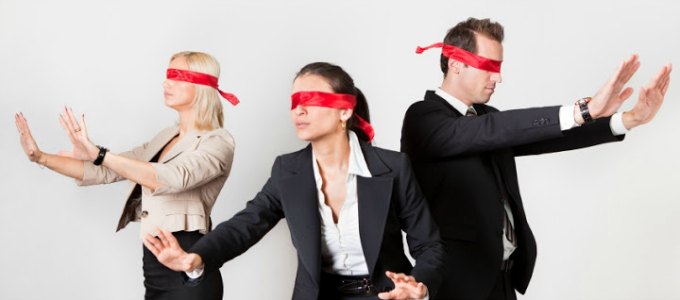
Being "blind" to race, gender and sexual orientation means ignoring discrimination.
by Kellye Whitney
September 29, 2014
One of my coworkers sent me an article titled “Why Do Millennials Not Understand Racism?” by Jamelle Bouie of Slate.
Any reasonable adult should understand the basic tenets of racism. Of course, that is just a headline and not the complete truth. Millennials do understand racism. According to the research stats Bouie presents, they just don’t want to be bothered.
According to MTV — likely polling this audience nationally to determine what they care about so it can convert and retain millennials as viewers — compared with older generations, this group is generally more tolerant, diverse and has a stronger commitment to equality and fair play. But this cohort also seems more interested in being colorblind than in addressing the problems around race and bias that still plague women and minorities in society today.
According to Bouie’s article, 68 percent of those surveyed — between 14 and 24 years old — believe “focusing on race prevents society from becoming colorblind.” Millennials are hostile to race-based affirmative action: 88 percent believe racial preferences are unfair as a matter of course, and 70 percent believe they are unfair regardless of “historical inequalities.”
I recall my nephew rolling his eyes at my cautions around race as he entered the workforce. I didn’t push. I figured life would probably teach him the lessons he needed to know better than I could.
But there’s a flaw in this kind of ignore-it-and-it-will-go-away thinking. Until such time as the world truly is colorblind and gender blind and blind to sexual orientation, what are minorities, women and LGBT people supposed to do? Suck it up, take the abuse and wait for better days? Are we supposed to perhaps turn the other cheek as we’re mistreated, paid less and passed over for jobs or promotions for no discernible reason? Perhaps we should just ignore it when creeps get handsy with us while working late, or when someone makes fun of the clothing or religious practices that make up the foundation of our culture and religion. *crickets chirping*
See? Ignoring diversity issues doesn’t work because if you don’t acknowledge there are problems, no one will look for solutions.
I wish being colorblind was all it took. But that is naïve. First, everyone’s not a millennial. Therefore, everyone doesn’t have the same hope and wishes for diversity issues. Second, not all millennials want or care about equality, nor do they all have the same upbringing, experiences and opportunities. So waiting for racism and such to die a natural death could take a long, long, long while.
Actually, there is no one generation period that completely cares about equality. There are very few absolutes in life. Bias affects some people more than others, and it affects different people in different ways at different times in their lives. That’s just the way it is.
Wanting the world to be colorblind is like covering your eyes with your hands before you take a walk, thinking, oh, I’ll be alright. Then you promptly trip over a crack in the sidewalk and end up with a goose egg on your head. Wishing away racism, bias, gender discrimination, etc. doesn’t work, nor does avoiding discussion of these topics because you feel as though they should no longer exist. They do. And ignoring them makes them worse, not better. It’s not that I want to talk about race and such all the time. I actually don’t, not at all. But if you keep your eyes open you may not trip, fall down and hurt yourself as often. And if you can see the crack in the sidewalk, you can point it out and possibly keep the next person on their feet.



